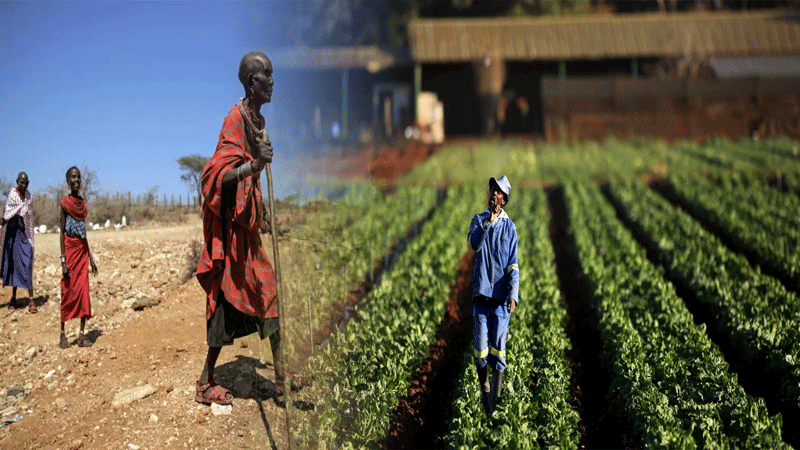According to Fowler, crops that are adapted to environment, pests, diseases, and consumer demands are necessary for food security. Rich harvests are not produced by poor soils.

In collaboration with the African Union, the United Nations, and others, the U.S. State Department has launched an initiative to assist African farmers and governments in preparing for and adjusting to challenges related to food security brought on by climate change.
The new program was introduced for African farmers on Wednesday at the Center for Strategic and International Studies in Washington by Dr. Cary Fowler, the United States’ special envoy for international food security.
According to Fowler, crops that are adapted to the environment, pests, diseases, and consumer demands are necessary for food security. Rich harvests are not produced by poor soils.
Fowler, who recently travelled to Zambia and Malawi, cautioned that it is urgently necessary to develop crops that are ready to withstand the effects of climate change and the demands of the continent’s expanding population in terms of agricultural productivity.
“We see a real opportunity to promote soil health and climate resistant crops in Africa at a time when the continent is experiencing weather extremes and population growth,” said Fowler.
“Africa will have the most people on it by the turn of the century, as you probably already know, but there are already 300 million people on the continent who lack access to food.”
According to Fowler, historically, most adaptation efforts have been concentrated on a small number of crops like maize, rice, and wheat. He argued that lesser-known crops that are high in vitamins and micronutrients should also receive this attention.
According to him, “other crops such as grains, such as sorghum, millet, and teff, and nearly all of the root and tuber crops, and the hundreds of indigenous African fruits and vegetables, have received much attention.”
“Their low yields and untapped potential are not surprising. “In the history of agriculture, there has never been a single plant breeder with scientific training working on many of these crops.” Together with the African Union and the United Nations Food and Agriculture Organization, this initiative is being launched.
At the launch of initiative for African farmers was Ambassador Cindy McCain, the United States’ permanent representative to the U.N. organisations in Rome. She claimed that overlapping crises like COVID-19, armed conflict, and climate change are putting stress on the world’s food systems. And everyone is being impacted by that, especially the world’s most vulnerable.
“I’ve seen the effects of conflict, water scarcity, and extreme weather conditions while travelling as the U.S. ambassador to U.N. agencies in Rome, from Kenya to Madagascar, Sri Lanka to Laos, and other places,” she said.
It is obvious that we must use science, technology, and innovation in agriculture to feed a growing population, and it requires a concerted global effort. This is something that world leaders sought to address at the COP 27 in Egypt last year and at the Negev Forum in the United Arab Emirates last month.
Besides the FAO and AU, according to Fowler, other organisations involved in this effort include the Rockefeller Foundation, Columbia University, and CGIAR, a global partnership that brings together international organisations working on food security research.
According to him, this is similar to a potluck dinner where the State Department provides some resources and perhaps a main dish, but other partners must pitch in to ensure the event’s success. Fowler noted that the process is a mix of consensus- and commitment-building and science.